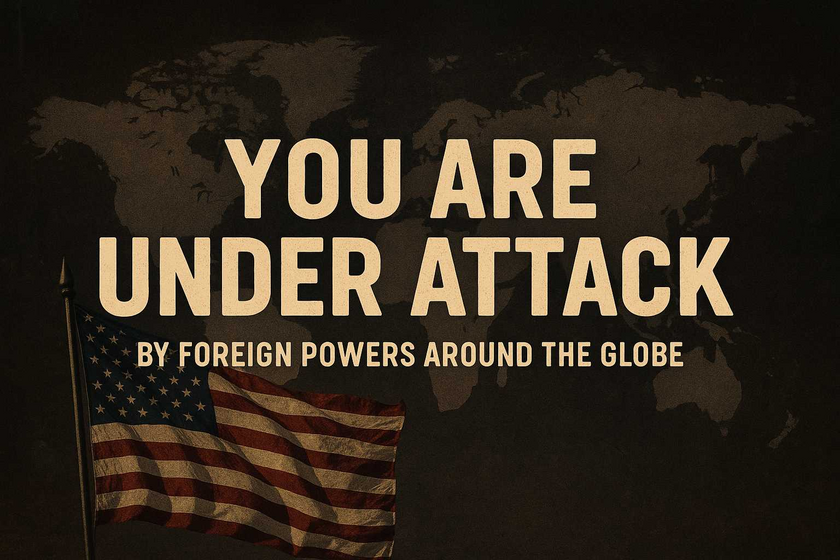Today I want to expose something most Americans don’t even realize: You—especially if you’re a Christian conservative or part of the MAGA movement—are under attack. Not just by political opponents at home, but by foreign powers around the globe.
First, the War You Know…
Yes, the Israel-Iran conflict is still heating up. Today, Iran struck a kindergarten in Be’er Sheva—adding to the long list of civilian targets after yesterday’s hospital strike. President Trump surprised everyone by saying he’s giving Iran “two weeks” to come back to the negotiating table.
But here’s the deal—he could still strike this weekend. I wouldn’t be surprised if the “two weeks” is a strategic head-fake.
Still, the memes are already out there: “Trump: Two Weeks” vs. “Trump: Too Weak.” That’s what happens when leadership hesitates. Whether or not you think we should get involved, there’s no question that inaction comes with its own risks.
But that’s not the main story today.
Now, the War You Don’t See…
Foreign governments are targeting you. Yes, you. The MAGA voter. The Christian mom. The military vet. The trucker. The homesteader. The man who still believes in truth, strength, and freedom.
And they’re doing it by weaponizing money, media, and manipulation.
Exhibit A: Qatar
In 2025, Qatar hired a D.C. PR firm called Lumen8 Advisors. They paid them $180,000 per month to polish their image in American media.
One of their objectives? Set up an interview between Tucker Carlson and Qatar’s prime minister.
After the interview, Tucker’s rhetoric on Iran—and Israel—started to shift. Coincidence?
There’s no confirmed payoff, but the optics are terrible.
Meanwhile, Al Jazeera (Qatar’s state-run media) floods Western media with polished content—while its Arabic version openly supports jihadist groups.
Qatar is funneling billions into U.S. universities, conservative outlets, and think tanks. And it’s not just America. QatarGate is unfolding in Israel, with two Netanyahu aides arrested for taking money from Qatar-linked operatives.

















